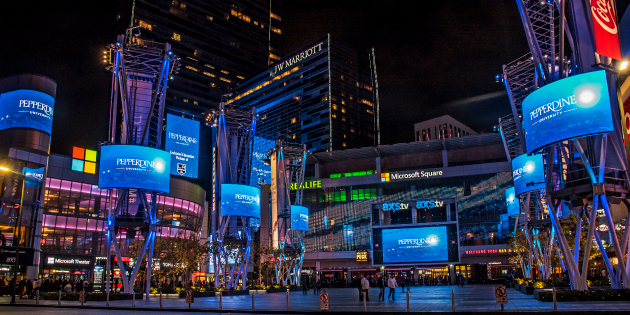(单词翻译:单击)
Many booms turn to bust. Unlike, say, WeWork, most entertainment firms have a plausible strategy, but too much cash is now chasing eyeballs. Netflix is burning $3bn a year and would need to raise prices by 15% to break even—tricky when there are over 30 rival services. It hopes that its fast-growing international markets will create economies of scale. As well as saturation, the other danger is debt. Deals and high spending have caused American media firms to build up $500bn of borrowing.
许多繁荣变成了萧条。与WeWork不同的是,大多数娱乐公司都有一个看似合理的策略,但现在太多的资金都在吸引眼球。Netflix每年要烧钱30亿美元,而且需要将价格提高15%才能实现收支平衡——在竞争对手超过30家的情况下,这是一个棘手的问题。Netflix希望快速增长的国际市场能够创造规模经济。除了饱和,另一个危险是债务。交易和高支出导致美国媒体公司积累了5000亿美元的借款。
When the shake-out comes, history offers two dispiriting examples of how a consumerfriendly boom can turn into a stitch-up. Telecoms and airlines in America saw a riot of competition in the 1990s only to become financially stretched and then reconsolidated into oligopolies that are known today for poor service and high prices.
当经济衰退来临时,历史提供了两个令人沮丧的例子,说明了消费友好型的繁荣如何转变为一种弥补。20世纪90年代,美国的电信和航空公司经历了一场激烈的竞争,结果财务吃紧,然后又重新合并,形成了如今以服务差、价格高而闻名的寡头垄断。

This is why government has a role in keeping the entertainment business competitive. First, it should prevent any firm— including the tech giants—from acquiring a dominant share in the content business. Second, it should require the companies that own the gateways to content, such as telecoms firms or handset providers such as Apple that can control what screens show—to have an open-access policy and not discriminate against particular content firms. Last, it should make sure subscribers can m ove their personal data from one firm to another, so they do not become locked in to one service.
这就是为什么政府要在保持娱乐业竞争力方面发挥作用。首先,它应该阻止任何公司——包括科技巨头——获得内容业务的主导份额。其次,它应该要求拥有内容门户的公司(如电信公司或苹果等能够控制屏幕显示内容的手机供应商)拥有开放访问政策,且不得歧视特定内容公司。最后,它应该确保用户可以将他们的个人数据从一个公司转移到另一个公司,这样他们就不会被锁定在一个服务上。
Don’t lose the plot
别搞砸了
Few people look to Hollywood for economics lessons. But the entertainment epic has featured vibrant capital markets. Buy-out firms, stockmarkets and junk bonds have all financed the industry’s reinvention. The stars have been billionaire entrepreneurs such as Reed Hastings, Netflix’s boss. And open borders have set the scene, since talent comes from around the world and a majority of streaming subscribers now live outside America. Across the economy, these elements are at risk as politicians and voters veer away from open trade and free markets. For a reminder of why they matter, turn on your screen and press play.
很少有人向好莱坞学习经济学。但这部娱乐史诗片的特色是充满活力的资本市场。收购公司、股票市场和垃圾债券都为该行业的再创造提供了资金。这些明星都是亿万富翁企业家,比如Netflix的老板里德•哈斯廷斯。开放的边界已经奠定了基础,因为人才来自世界各地,大多数流媒体用户现在住在美国以外的地方。在整个经济中,随着政客和选民逐渐远离开放贸易和自由市场,这些因素正面临风险。为了提醒你它们为什么重要,打开你的屏幕并按播放键。
译文由可可原创,仅供学习交流使用,未经许可请勿转载。


